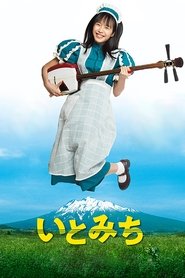This coming-of-age film accurately portrays childhood as a large and diverse bag of overlapping ideas, and this will always be difficult to portray in a single movie. Indeed, the film seems to want to say something meaningful on at least the following: a strained father—daughter relationship; an absent mother; three generations of female shamisen musicians; the performance of "perky passivity" required from waitress staff; a budding sapphic relationship; the ever-changing role of cultural anthropology; commonplace sexual assaults in the workplace, as well as the contradistinctions between the Aomori Prefecture's informal status as a 'heritage' region of Japan and its position as a minority culture within Japan as a whole.
That's a lot to ask the audience to invest themselves in, and I'm not sure the film managed to pull off all of these things, whilst also being lighthearted at the same time. I think it definitely fails short in its soft critique of emotional labour — the very existence of the "maid café" (where the maids have to call customers 'master' and the film does not disown) is obviously deeply problematic, and I can't help that working in a place like this is inordinately worse in reality. Still, it remains an open question to me whether working in this particular version of a maid bar is significantly worse than working in an orchard all day and then in a sushi bar all night, like one of the other characters' mothers.
Still, the thing I came away with most was the ever-useful reminder that 'Japan' is neither a single nor homogenous culture, contrary to both the well-meaning in the West as well as to those who harbour conscious or subconscious fantasies about racial purity.
[Watched as part of the Cambridge Japan Film Fest 2023, itself part of the Japan Foundation Touring Film Programme 2023]

